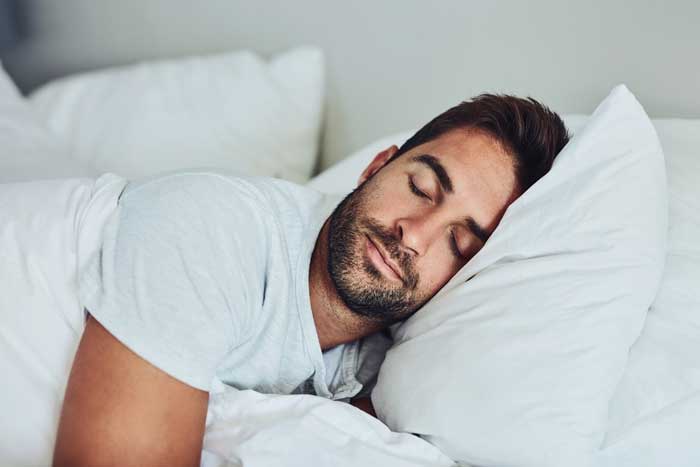Sleep Disorders
Sleep Disorder Treatment
Do you abruptly awaken in the night with shortness of breath? Does your partner complain about your excessively loud snoring? Or do you have difficulty sleeping?
If you experience any of the above, you may be dealing with sleep apnea or another type of sleep disorder. If you suspect you may have a sleep disorder, don’t wait to get treatment. Our team at Neurosleep & Pain Management Center in Fort Gratiot, MI, can assess whether you have a sleep disorder, like sleep apnea, and get you the treatment and care you need to stay safe and sleep better.
Types of Sleep Apnea
Sleep apnea is a potentially serious sleep disorder in which breathing repeatedly stops and starts. There are multiple types of sleep apnea, including:
Obstructive Sleep Apnea
This type of sleep apnea is the most common form of sleep apnea and occurs when the muscles in the back of your throat relax. These muscles support the soft palate, the triangular piece of tissue hanging from the soft palate (uvula), the tonsils, the side walls of the throat, and the tongue. When the muscles relax, your airway narrows or closes as you breathe in, preventing you from getting an adequate breath in. Your brain senses this inability to breathe and briefly rouses you from sleep so that you can reopen your airway. This awakening is usually so brief that you don’t remember it, but you may make a snorting, choking, or gasping noise. This pattern can repeat itself five to 30 times or more each hour, all night long.
Central Sleep Apnea
This less common form of sleep apnea occurs when your brain doesn’t send proper signals to the muscles that control breathing. This means that your body makes no effort to breathe for a short period of time. You may then awaken due to the lack of oxygen or experience a feeling of shortness of breath.
Complex Sleep Apnea Syndrome
Also known as treatment-emergent central sleep apnea, this type of sleep apnea occurs when someone has both obstructive sleep apnea and central sleep apnea.

Symptoms of Sleep Apnea
The symptoms of sleep apnea can vary and overlap with other conditions, sometimes making it difficult to know whether you should contact a doctor for assessment. Some common symptoms to watch for include:
- Loud snoring, to the point that it disturbs your sleep or others’ sleep
- Episodes of breathing cessation witnessed by another person
- Abrupt awakenings, accompanied by shortness of breath
- Waking with a dry mouth or a sore throat
- Headaches when you wake up in the morning
- Difficulty staying asleep
- Irritability
- Attention problems
- Excessive drowsiness throughout the day
What Should You Do Next?
If you notice these symptoms, you should come see our team at Neurosleep & Pain Management Center in Fort Gratiot, MI, for an assessment. Sleep apnea can lead to a host of complications and symptoms, including fatigue, difficulty concentrating, high blood pressure, type 2 diabetes, and other complications. When you come to our neurology center for treatment, we’ll evaluate whether you have sleep apnea, what type of sleep apnea you’re experiencing, and what type of treatment is right for you.
